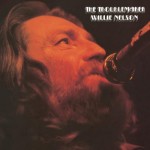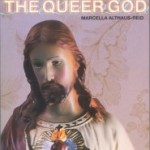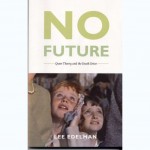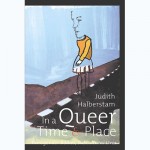A few days ago I wrote about troublemaking hope here and queer hope here. At the end of my post on queer hope, which was primarily about Lee Edelman’s No Future: Queer Theory and the Death Drive, I pondered:
The idea of no future, at least at first glance, indicates that we need to function without hope. If there is no future (no better world on the horizon), there is no hope that things will be different. Because isn’t hope a futural term? Edelman seems to be rejecting the possibility for queer hope. But is hope fundamentally counter to queer? Can we imagine these things together?
In the midst of doing more prep work for my queering theory course (and by prep work I mean finding books on amazon that I might want to use and then skimming through the “customers who bought this item also bought” section), I came across a book by Michael Snediker called, Queer Optimism. The description of his project intrigued me:
Michael Snediker offers a much-needed counterpoint to queer theoretical discourse, which has long privileged melancholy, self-shattering, incoherence, shame, and the death drive. Recovering the forms of positive affect that queer theory has jettisoned, Snediker insists that optimism must itself be taken beyond conventional tropes of hope and futurity and reimagined as necessary for critical engagement.
 Cool. So, we can have a positive vision of queer ethics/theory/politics that is not shaped by some futural vision of hope. Instead of queer hope we have queer optimism. This idea hadn’t occurred to me and I am very interested in reading more about what Snediker is suggesting. I haven’t had a chance to get the book from the library yet, but I did find Snediker’s earlier essay from 2006 about queer optimism. I am in the process of reading it right now. In this essay, Snediker assesses the foundational queer-as-pessimistic suffering theories of Judith Butler, Leo Bersani, Eve Sedgwick and Lee Edelman and argues for an alternative: queer-as-non-futural-optimism. Huh? Here, I will let Snediker explain. Queer optimism
Cool. So, we can have a positive vision of queer ethics/theory/politics that is not shaped by some futural vision of hope. Instead of queer hope we have queer optimism. This idea hadn’t occurred to me and I am very interested in reading more about what Snediker is suggesting. I haven’t had a chance to get the book from the library yet, but I did find Snediker’s earlier essay from 2006 about queer optimism. I am in the process of reading it right now. In this essay, Snediker assesses the foundational queer-as-pessimistic suffering theories of Judith Butler, Leo Bersani, Eve Sedgwick and Lee Edelman and argues for an alternative: queer-as-non-futural-optimism. Huh? Here, I will let Snediker explain. Queer optimism
doesn’t ask that some future time make good on its own hopes. Rather, queer optimism asks that optimism, embedded in its own immanent present, be interesting. Queer optimism’s interest–its capacity to be interesting, to hold our attention–depends on its emphatic responsiveness to and solicitation of rigorous thinking (2).
I am not sure if his explanation helped any better than mine. I will have to tackle this again once I have read the whole essay–all 50 pages of it! At this preliminary stage, Snediker’s counter to both hopeful optimism (what he calls utopic optimism) and queer pessimism has got me thinking about hope, troublemaking, and queer ethics as something more than just a rejection of ethics/politics/culture (which is Edelman’s position). I especially appreciate his critical approach to Butler’s emphasis on melancholy, suffering and grief. As someone who is in the process of grieving for a loved one (who, while still barely alive, has virtually no livable life), I have found Butler’s work to be very helpful in my reflecting on the process of grief/mourning/loss. Yet, as I experience the pain and suffering of that grief, I find myself wondering, should grief (being undone by others) be the only, or at least primary, foundation for an ethics of accountability to others/the Other? Are there alternative, more positive and perhaps joyful, ways in which to think about how and why we are accountable to and responsible for others? Personally, I think being in a constant state of grief is exhausting and overwhelming and one that I am quite ready to get out of. I like the idea of imagining an ethic that is queer (and full of troublemaking) but not predicated on this negative sense of loss.
Can Snediker deliver on the promise of his concept? Wait, am I imposing hopeful optimism on him? Hopefully (argh! there I go again), I can wrap my brain around his vision of optimism by the time I finish the essay.





